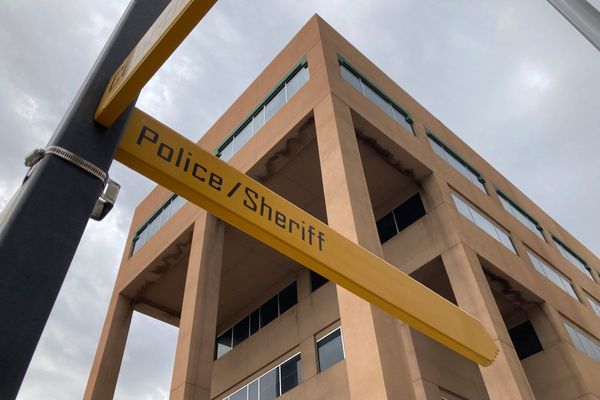LANSING, Mich. — Michigan Supreme Court Justice Richard Bernstein told hundreds of Democrats Sunday that his court will have the final say on abortion rights in Michigan.
The justice's comments, made as he accepted the Democratic nomination to appear on the Nov. 8 general election ballot, came as two cases challenging the constitutionality of abortion are working their way up to the 4-3 Democratic-nominated majority on the Supreme Court.
"Ultimately, it is the Michigan Supreme Court that will make the absolute final determination, it will be the Michigan Supreme Court that will have the final word in a woman's right to choose in the state of Michigan," Bernstein said.
Bernstein stressed in an interview with The Detroit News before his nomination that he wasn't taking a position on the issue of abortion. But he argued, procedurally, it's clear the question of abortion rights in Michigan could work its way up to the high court through either of two lawsuits challenging Michigan's 91-year-old abortion ban.
Even if abortion is decided through a ballot initiative this November, Bernstein said, it is likely the interpretation of the proposed constitutional amendment would likely land it back in the lap of the state Supreme Court.
"I would venture to say there are going to be cases that are going to come to the Michigan Supreme Court in terms of interpretation, just like there were on living wage and just like there was on marijuana," Bernstein said. "We're still dealing with marijuana."
Michigan voters legalized marijuana for medicinal purposes in 2008 and then decriminalized adult recreational use of cannabis in 2016. The voter-initiated laws have spurred countless legal battles in state courts over the past decade.
Michigan's 1931 law outlawing abortion in all cases except to save the life of the mother had been dormant for nearly half a century until June 24, when the U.S. Supreme Court overturned the landmark Roe v. Wade decision affirming a federal constitutional right to an abortion.
A state Court of Claims judge has halted the implementation of the 1931 abortion ban, spurring legal fights in multiple courtrooms.
An Oakland County judge ruled Friday that county prosecutors cannot enforce the state's 1931 abortion law as courts consider a Gov. Gretchen Whitmer lawsuit seeking to overturn the ban as unconstitutional, a decision that two GOP county prosecutors plan to appeal.
Should Michigan's abortion ban take effect, the Supreme Court would be tasked with deciding on legal questions around in vitro fertilization or miscarriage, Bernstein said.
When asked whether the Supreme Court would intervene early in Whitmer's case, as requested by the governor, Bernstein noted two preliminary injunctions currently are blocking the state's abortion ban.
With those in place, it's likely the high court as an independent body will follow regular procedure, which requires the case to reach the high court only after lower court options have been exhausted, according to Bernstein.
"Now that there's an injunction that's been issued, I think the court is basically going to follow its duties as a court and follow the procedures that are necessary for the court to follow," Bernstein said.
Bernstein also referred to the high court as the "road to the White House," in a nod to the Supreme Court's role in deciding disputes over state election law. He referenced the Wisconsin Supreme Court's recent decision blocking drop boxes as an example of the types of cases that could come before the Michigan Supreme Court.
"At the end of the day, this is kind of intense as it gets," Bernstein said of the debates ahead on abortion and election law.
———
(Detroit News staff writer Kara Berg contributed to this report.)
———







